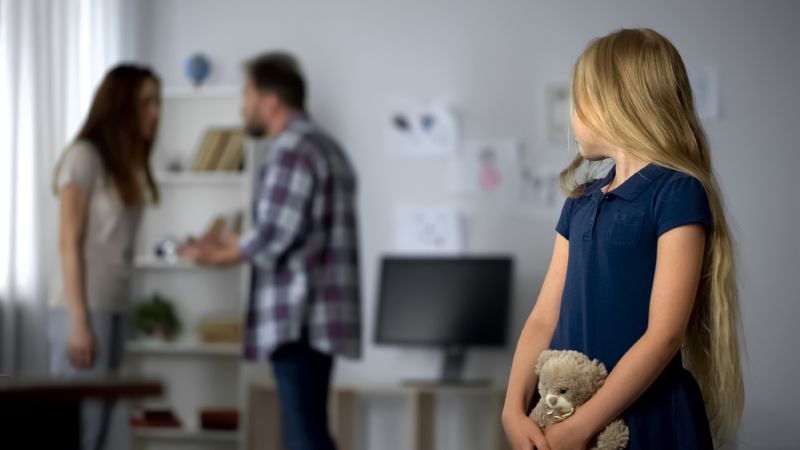In North Carolina, courts take allegations of domestic violence seriously, especially when children are involved. If you are facing domestic violence charges and are also involved in a custody case, those charges can have a significant impact on the outcome. Whether you're accused or defending against false claims, understanding how domestic violence affects child custody is critical.
Judges are required to prioritize the best interests of the child in any custody decision. If there’s evidence of abuse, intimidation, or coercive behavior, the court may limit or deny custody to the accused parent, even if the criminal case is still pending or hasn’t resulted in a conviction. That’s why anyone facing domestic violence allegations in the context of family law needs to act quickly and strategically to protect their parental rights.
How North Carolina Courts Evaluate Custody
In general, North Carolina family courts prefer to award joint custody when possible, allowing both parents to remain actively involved in the child’s life. However, when domestic violence is alleged, the balance shifts. Judges will consider whether the accused parent poses a threat to the child’s safety or emotional well-being.
Key factors courts may evaluate include:
- The nature and severity of the alleged violence
- Whether the child witnessed the abuse
- The frequency of past incidents or any history of protective orders
- Whether the violence was directed toward the child or another household member
- The impact of the behavior on the child’s mental and emotional health
Even a single accusation of domestic violence can lead the court to place restrictions on visitation, require supervised parenting time, or suspend custody rights altogether, at least temporarily. If there's a pattern of abuse, the consequences may be long-term or permanent.

Temporary Custody Orders and Protective Orders
In many cases, domestic violence allegations result in the issuance of a temporary protective order, also known as a 50B order in North Carolina. These orders often include emergency custody provisions that grant temporary custody of the child to the alleged victim and restrict the accused parent’s access.
Once a protective order is in place, the court will schedule a full hearing. During this time, the accused parent has the opportunity to respond to the allegations and present their side of the story. However, even temporary orders can influence future custody outcomes. Judges often consider these early decisions when issuing final custody rulings.
If you're facing a 50B order and have children, it’s essential to respond quickly and effectively. At Kastrati Law, we help parents understand what’s at stake and work to build a defense that preserves both their freedom and their relationship with their children.
What Happens If You’re Convicted?
A conviction for domestic violence in North Carolina can severely damage your custody rights. If the court finds that you’ve engaged in acts of physical harm, threats, harassment, or emotional abuse, you may be considered unfit to have custody of your child.
In some cases, supervised visitation may still be allowed, particularly if the court believes the child will benefit from maintaining some contact. However, the conditions of that visitation will be closely monitored, and violations can lead to complete loss of visitation rights.
It’s important to remember that child custody is never “set in stone.” Custody orders can be modified if circumstances change, either in your favor or against you. That’s why any criminal charge tied to domestic violence must be taken seriously from the very beginning.
What If the Allegations Are False?
Unfortunately, false allegations of domestic violence do occur, often during highly contested divorces or custody disputes. When one parent wants full custody, they may believe accusing the other of abuse will sway the court in their favor. While judges are trained to look for evidence before making decisions, even unproven accusations can create lasting damage.
If you’ve been falsely accused, it’s vital to collect documentation, secure witness statements, and work with an attorney who understands both family and criminal law. A strong defense doesn’t just protect your reputation; it helps preserve your right to remain actively involved in your child’s life.
The legal team at Kastrati Law has experience handling complex family law and domestic violence cases. We understand the high stakes involved and the stress these situations bring. Our goal is to help you defend your rights while also supporting your child’s well-being.
Protecting Your Parental Rights
Whether you are the accused or the person seeking protection for your child, it’s essential to have legal representation that understands how domestic violence charges and custody laws intersect. Timing is crucial. The actions you take in the first days and weeks after an accusation can influence your long-term parental rights.
Every case is unique, but one thing is constant: courts will always err on the side of protecting children. That means presenting clear, organized evidence is essential, whether you're trying to retain custody or request restrictions on an abusive parent.
At Kastrati Law, we provide clear, aggressive representation for parents facing these emotionally charged issues. Our experience with both criminal defense and family law allows us to approach your case from all angles, ensuring that your rights, your future, and your family remain protected.
If you’re facing a domestic violence allegation or concerned about how it could impact your custody case, contact us today. We’re here to listen, advise, and fight for the outcome that protects you and your child.




